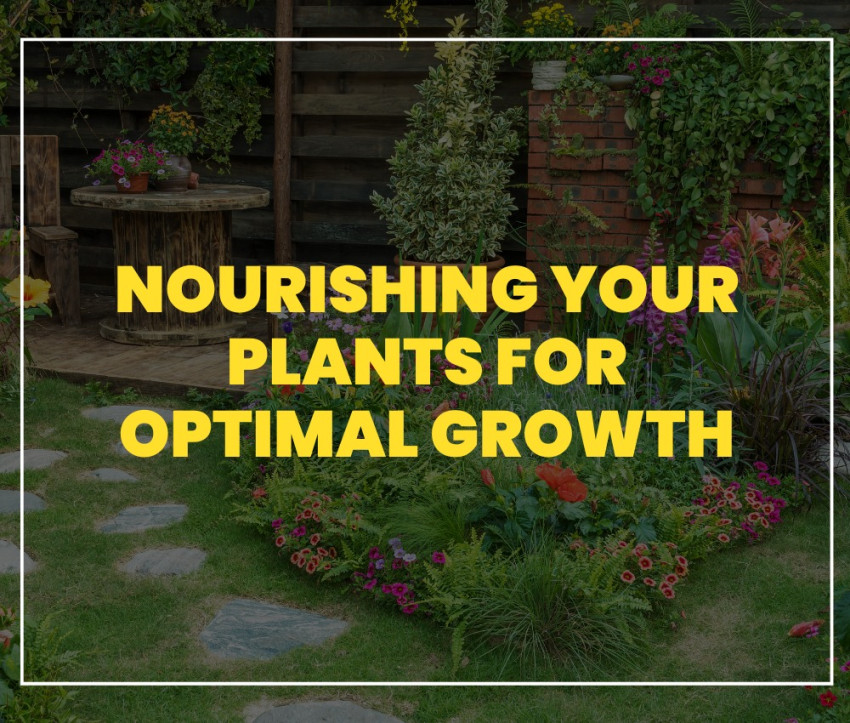
In the realm of gardening, the role of proper fertilization cannot be overstated. Just as humans require a balanced diet to thrive, plants too rely on essential nutrients for healthy growth and development. However, unlike humans who can vocalize their needs, plants depend entirely on their caretakers to provide them with the necessary nutrients. This is where a well-structured fertilization schedule comes into play, serving as a roadmap to ensure that plants receive the right nutrients at the right time. In this blog post, we'll delve into the significance of a fertilization schedule and why it is crucial for maintaining vibrant and flourishing gardens.
Understanding the Nutritional Needs of Plants:
Before delving into the importance of a fertilization schedule, it's essential to understand the nutritional requirements of plants. Like any living organism, plants require a combination of macro and micronutrients to support their growth and development. These essential nutrients include nitrogen, phosphorus, potassium, calcium, magnesium, sulfur, and various trace elements such as iron, zinc, and manganese. Each nutrient plays a distinct role in plant physiology, from aiding in photosynthesis to promoting root development and flowering.
The Role of Fertilization:
Fertilization serves as the primary method for replenishing the soil with essential nutrients that may be deficient or depleted. While soil naturally contains some nutrients, continuous plant growth and environmental factors such as rainfall and erosion can lead to nutrient leaching and depletion over time. Fertilizers supplement the soil with the necessary nutrients, ensuring that plants have access to the elements they need for optimal growth.
The Importance of a Fertilization Schedule:
Nutrient Balance:A fertilization schedule helps maintain a proper balance of nutrients in the soil, preventing deficiencies or excesses that can hinder plant growth. By following a predetermined schedule, gardeners can ensure that plants receive a consistent supply of nutrients throughout their growth cycle.
Timing:Timing is crucial when it comes to fertilization. Different nutrients are required at various stages of plant growth. For example, nitrogen is essential for promoting lush foliage during the vegetative stage, while phosphorus is crucial for root development and flowering. A fertilization schedule outlines when to apply specific nutrients, aligning with the plant's growth stages for maximum effectiveness.
Preventing Nutrient Loss:Over time, nutrients can leach from the soil due to factors such as rainfall, irrigation, and microbial activity. By adhering to a fertilization schedule, gardeners can replenish these lost nutrients before they become deficient in the soil, ensuring continuous plant health and vitality.
Minimizing Environmental Impact: Overapplication of fertilizers can have detrimental effects on the environment, such as nutrient runoff into water bodies, soil erosion, and contamination of groundwater. A well-designed fertilization schedule takes into account the nutrient requirements of plants while minimizing excess application, thereby reducing the environmental impact.
Promoting Plant Health and Resilience:When plants receive the right balance of nutrients at the appropriate times, they are better equipped to withstand environmental stressors such as drought, pests, and diseases. Properly fertilized plants exhibit robust growth, vibrant foliage, and increased resistance to adverse conditions.
Developing a Fertilization Schedule:
Creating a fertilization schedule involves assessing the specific needs of your plants, considering factors such as soil type, plant species, climate, and growth stage. Soil tests can provide valuable insights into the nutrient levels and pH of the soil, guiding fertilizer selection and application rates. Additionally, familiarizing yourself with the nutrient requirements of different plants and understanding their growth cycles will aid in developing an effective fertilization plan.
Conclusion:
In conclusion, a fertilization schedule is a vital tool for maintaining healthy and thriving gardens. By providing plants with the essential nutrients they need in a timely and balanced manner, gardeners can promote optimal growth, flowering, and fruiting while minimizing environmental impact. Whether you're a seasoned gardener or a novice enthusiast, incorporating a fertilization schedule into your gardening routine will undoubtedly yield bountiful rewards in the form of lush greenery, vibrant blooms, and abundant harvests. So, take the time to nourish your plants properly, and watch them flourish before your eyes.




